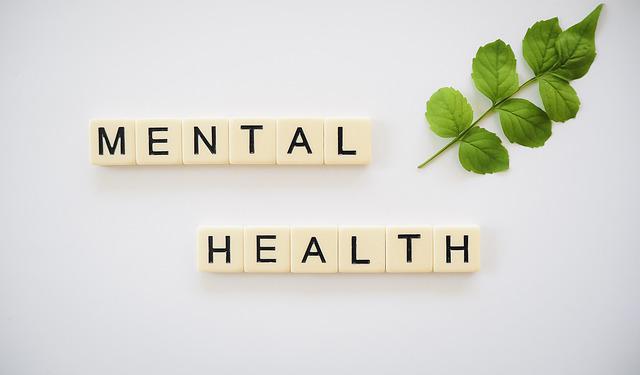9 Things To Stop Saying if You Have Depression
Being diagnosed with depression can be scary. Add in the fact that you need to tell your friends and family about it, and it can seem overwhelming. Learning how to be open with people about your condition is the first step towards living with depression, but there are certain things you should stop saying before you even get started. Here are 9 things to stop saying if you have depression.
1. “Just be positive.”
It can feel like a slap in the face, especially if you're already trying to be positive and it's not working.
Saying these words ignores the fact that being in a state of depression doesn't work like that. It's not an on/off switch—you don't just decide one day to be happy, and then all of a sudden you are, even if deep down inside there are things that are still bothering you.
When someone tells you to “just be positive,” they're telling you that they think your feelings don't matter—that what's going on inside your head isn't real. And that's not true! What we want is for people with depression to feel validated and supported. We want them to know that what they're feeling is real and valid, even if it seems irrational or crazy from the outside looking in.
2. “You're just feeling sorry for yourself.”
Being told you're just feeling sorry for yourself can be a crushing blow to your self-esteem and confidence. It's no wonder that it's one of the most common things people with depression hear when they disclose their condition.
The thing is, it's not true. The symptoms of depression are very real and don't go away simply because you feel bad about them or because other people tell you they're not real. They can be incredibly painful, and they can make getting out of bed in the morning seem impossible..
If someone close to you is suffering from depression, try not to get angry with them or blame them for their condition. Instead, try to understand what they're going through and offer support where possible (like being there for them when they need help).
3. “It's all in your head.”
This is the most common and frustrating thing people say when someone tells them they have depression. The problem with this statement is that it completely disregards the fact that depression is a real illness with real symptoms. Just because you can't see it doesn't mean it isn't there. So please, don't dismiss someone's feelings as just “in their head.”
The first thing to know about depression is that it's not your fault. Depression isn't caused by something you did, or something you didn't do, or something you're thinking about doing. It just happens. It's a chemical imbalance in your brain that makes it harder for you to think clearly and feel good about yourself and the world around you. But it's not something to be ashamed of—we all have bad days! And when those bad days become weeks and months, that's when depression can really set in. However, keep in mind that there are ways to make yourself better.
4. “You have nothing to be depressed about.”
It might seem like a nice, supportive thing for someone to say… but it's actually quite harmful. When you tell someone with depression that they don't have anything to be depressed about, it makes them feel like their feelings are invalid. It makes them feel like their emotions don't matter—and that's not something any human being should ever feel!
Plus, when you tell someone who's struggling with depression that they're wrong about their own feelings (or that they shouldn't feel the way they do), it can make them feel even worse than before. It shows them that no one cares about their feelings and it can make them feel isolated and alone in the world even more than before!
This is because they don't understand how difficult it can be sometimes just getting up in the morning and making yourself go through your day, even though nothing bad has happened yet. They also don't understand how hard it can be just taking care of yourself when everything seems so overwhelming sometimes.
Therefore, stop listening to those people and focus your attention to those people who understand your situation.
5. “Snap out of it!”
When someone is depressed or suffering from other mental health issues, they may not be able to snap themselves out of it. They may be trying, but it's something that takes time and patience.
When you say “snap out of it,” what you're really saying is “fix yourself.” But guess what? You can't fix yourself. You can only work on yourself so much until you reach a breaking point and have to take a break from all the stress of trying to fix yourself.
If someone close to you suffers from depression, please don't tell them that they need to “snap out of it.” It's not their fault that they're depressed, and if anything, this will make them feel worse about themselves. There's nothing wrong with being depressed — there are many reasons why people become depressed (experiencing loss or trauma, for example) — and it doesn't mean that person isn't trying as hard as they can to get better.
6. “I'm sure there are worse things in this world than being depressed.”
That's because the only thing worse than being depressed is feeling like everyone around you thinks your mental health problem is trivial or unimportant. It's hard enough to deal with feeling sad and hopeless without having someone else tell you that their problems are bigger than yours. If someone close to you says “I know you're sad, but at least your life isn't like mine,” then they're basically saying that their problems are worse than yours. And even if they don't mean for it to come out that way, it still hurts!
If someone tells you that they're depressed, you may want to tell them that “there are worse things.” But this is often unhelpful and minimizes their experience. When someone says they're depressed, they don't want to be told that they should think of all the other people who have it worse than they do. They want you to listen and empathize with them. They want your support—not advice on how to cope with their feelings or suggestions for what else they could be doing instead of feeling down.
7. “You don't look like you're depressed!”
You don't look like you're depressed is a phrase that people with depression hear all the time. It's meant to be a compliment—the speaker means to convey that they're surprised by the fact that someone with depression doesn't look like they're suffering from it.
But what they don't realize is that this phrase can actually be incredibly harmful and damaging to those who suffer from depression. It reinforces the stigma surrounding mental illness, and can even make people feel ashamed of their condition. The thing is, there's no standard way for someone who has depression to “look” (and even if there were, you probably wouldn't be able to tell anyway).
So next time you catch yourself saying this phrase, stop yourself! Instead of making assumptions about how someone looks or acts based on their mental health status, try asking them about how they're feeling instead.
8. “You shouldn’t be depressed because you are a Christian “
That's the message that many churches and pastors send to their congregants. It's not just a matter of faith: it's also a matter of the way the church structures itself. Some churches are focused on “feel-good” messages, and these churches often appeal to people who are struggling with depression.
But what happens when those people are Christians? They feel guilty because they're depressed in spite of their faith. They might feel like they don't deserve help because they aren't following God's plan for them.
We all know that depression isn't a character defect—but when you're struggling with it, and you're also trying to live up to your church community's expectations, it can be hard not to feel like something is wrong with you if this is happening in spite of your beliefs.
9. “You need to get over it already!”
It may seem like a harmless comment at first glance—after all, isn't being told to “get over it” just another way of saying “buck up”? But in reality, these sorts of comments can actually make it harder for someone who's depressed to recover. So what makes them so harmful?
Actually, there's nothing wrong with wanting others to feel better. We all want our loved ones and friends to be happy and healthy—that's totally understandable! The problem lies in the fact that telling someone who suffers from depression that they should “get over it” doesn't take into account the nature of their illness or how it affects them differently than other types of illnesses might affect other people in similar situations.
This is not helpful because depression is hard to understand if you haven't experienced it yourself. Depression isn't just a feeling of sadness or being bummed out for a few hours or days — in some cases, depression can last for years and be so intense that it affects every aspect of your life.
If you have never experienced depression before, then how do you know how to help someone who has? You don't! And suggesting they “get over it” isn't going to help them feel better or get better.
So, If someone close to you suffers from depression, try not saying this phrase around them. Instead, ask them how you can help them move forward in their journey towards mental health recovery by offering support in whatever way possible (even if it's just listening).
If you say or someone says these things, you're not being self-aware. It's important to remember depression is not as simple as it seems. So, put yourself in someone else's shoes and learn to have empathy.
For more helpful and informative insights, visit here.





